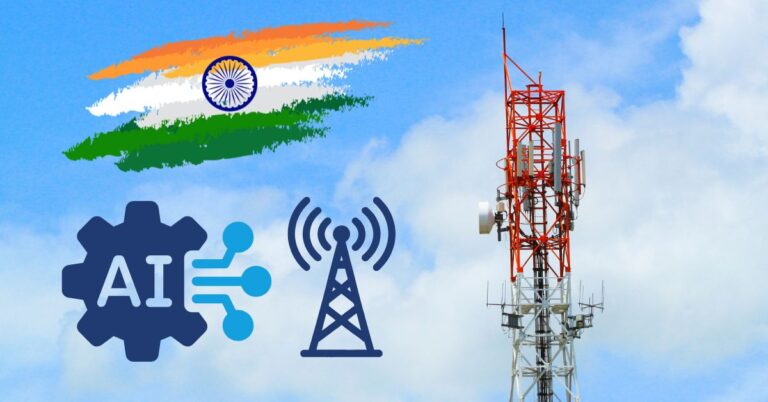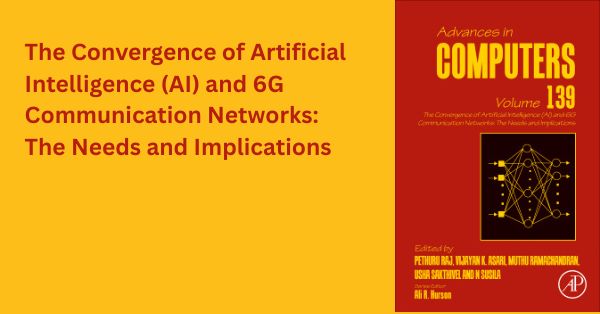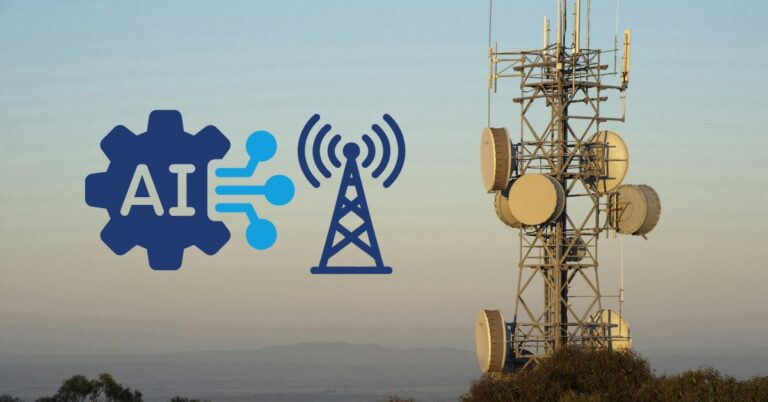Introduction to Verizon’s Generative AI Strategy
Verizon is leveraging Generative AI to enhance customer experience and streamline its operations. With the launch of new AI tools, Verizon aims to transform how it interacts with customers, ensuring every interaction is positive and meaningful. These tools are designed to work alongside Verizon’s employees, reducing cognitive load and enhancing efficiency. Verizon’s AI strategy focuses on three main priorities: optimizing internal processes, enhancing product experiences, and driving revenue growth through advanced AI applications.
Key Features and Benefits of Verizon’s Generative AI Tools
Verizon’s use of generative AI technology incorporates several key features that enhance customer service and improve operational efficiency. Below are the primary tools and their benefits:
Personal Research Assistant
- Efficiency in Customer Service: Verizon’s personal assistant technology helps frontline teams quickly access and review thousands of resources. This ensures that employees can provide accurate and personalized information to customers swiftly. As a result, employees can now answer 95% of customer inquiries, significantly increasing answer accuracy rates. This tool not only saves time but also enhances the overall customer experience.
- Customized Information Delivery: By analyzing customer queries in real-time, the Personal Research Assistant delivers tailored information, ensuring that each customer receives relevant and precise answers. This reduces the need for customers to be transferred between departments, thereby improving first-contact resolution rates and overall satisfaction.
“Fast Pass” to Resolution
- Intelligent Customer Pairing: AI is used to match customers with the best available customer care representative who can address their specific needs. For instance, if a customer calls with a question about international service, they are paired with an expert in international travel options. This ensures a quicker and more accurate resolution, improving customer satisfaction and reducing the time spent on each query.
- Optimized Resource Allocation: The Fast Pass system helps manage and allocate customer service resources more effectively, ensuring that high-priority cases are handled promptly by the most qualified representatives. This not only enhances customer experience but also improves operational efficiency.
Personal Shopper/Problem Solver
- Enhanced Customer Interaction: This tool works alongside employees to instantly analyze a customer’s profile and provide relevant answers, offers, and product recommendations. By understanding the customer’s needs, Verizon has been able to cut customer transaction times by two to four minutes, enhancing the shopping and problem-solving experience.
- Proactive Service: The Personal Shopper/Problem Solver anticipates customer needs by analyzing historical data and current interactions. This proactive approach helps offer solutions and products even before the customer articulates their needs, thus enhancing the overall customer experience.
Segment of Me
- Personalized Customer Offers: AI helps Verizon treat each customer as a unique segment by providing personalized offers, service upgrades, and new plans tailored to their individual preferences. This personalization has led to increased customer engagement and reduced churn rates, demonstrating the effectiveness of AI in driving customer loyalty.
- Dynamic Customer Profiling: The Segment of Me tool continuously updates customer profiles based on real-time data and interactions, ensuring that the personalization remains relevant and effective. This dynamic profiling helps maintain high levels of customer satisfaction and loyalty over time.
Operational Enhancements Through Verizon’s Generative AI Tools
Verizon’s deployment of generative AI tools spans several key operational areas, significantly enhancing efficiency and customer satisfaction while creating new revenue streams. Below are detailed points highlighting these enhancements:
Network Optimization: Generative AI is central to Verizon’s cost transformation program, optimizing processes such as fuel consumption to enhance operational efficiency. For example, generative AI-driven predictive maintenance schedules help reduce unnecessary vehicle trips, save fuel, and reduce operational costs. Additionally, generative AI drives network performance, manages capacity deployment, and reduces power consumption. These efforts ensure Verizon maintains high service quality while minimizing operational costs. Generative AI models predict peak usage times and optimize network configurations to prevent congestion and enhance user experience.
Enhancing Product Experiences: Generative AI capabilities are integrated into Verizon’s myPlan offering, providing personalized plan recommendations based on customer usage patterns and preferences. This customization improves customer satisfaction and drives sales. For instance, customers who frequently travel internationally receive tailored plans that include international roaming benefits. Furthermore, generative AI-powered interactive demos help customers understand product features and benefits more effectively, leading to higher conversion rates and customer satisfaction.
Establishing Generative AI-Based Revenue Streams: Verizon is exploring opportunities to generate revenue through generative AI by leveraging its network’s low latency, high bandwidth, and robust mobile edge computing capabilities. These advanced generative AI applications support new business models and revenue streams. For example, Verizon offers generative AI-driven analytics services to enterprise customers, helping them optimize their operations and make data-driven decisions. Additionally, Verizon is expanding its generative AI services to include predictive analytics and advanced data processing capabilities, providing businesses with valuable insights and enhancing their operational efficiency.
Customer Loyalty Through Verizon Generative AI tools
Verizon, a leading U.S. telecom company, is utilizing generative AI (GenAI) to enhance customer loyalty and reduce churn. According to CEO Hans Vestberg, this technology is expected to retain approximately 100,000 customers in 2024 by predicting the reasons behind customer calls, efficiently matching them with suitable agents, and minimizing store visit times.
Verizon handles around 170 million calls annually, and with GenAI, the company can accurately predict the purpose of these calls 80% of the time. By leveraging this predictive capability, Verizon can direct calls to the most appropriate agents out of its 60,000 call agents, ensuring better customer service and satisfaction. This strategic use of GenAI not only improves customer experience but also significantly reduces the likelihood of customers switching to other service providers.
Earlier in 2024, Verizon introduced several GenAI-backed initiatives aimed at enhancing customer service. These efforts are part of a broader trend where companies like Swedish fintech Klarna also employ GenAI to expedite customer response times and cut costs. At the Future Talent Summit in Stockholm, Vestberg highlighted that Verizon has four GenAI products in commercial use, utilizing 1,500 data points per telephone number to personalize services without exposing customer data externally. All data processing occurs within Verizon’s network to ensure privacy and security.
In addition to handling calls, Verizon’s GenAI solutions are also deployed in its physical stores, which receive about 70 million visits annually. The technology personalizes offers immediately upon a customer’s arrival, reducing the average store visit time by approximately seven minutes. This personalized approach is expected to lower Verizon’s churn rate, which stood at around 1% in 2023, by providing a superior customer experience and increasing profitability.
Vestberg emphasized that these AI-driven improvements benefit both customers and employees, ultimately boosting Verizon’s revenue by enhancing customer retention and service efficiency.
Ethical AI Practices and Data Security at Verizon
Verizon places a strong emphasis on ethical AI practices and data security. The company has established an AI Leadership Council consisting of top executives from legal, IT, security, network, and other departments. This council oversees responsible AI use and ensures that customer data is protected. By maintaining a human-in-the-loop approach, Verizon ensures that AI applications are monitored and guided by human oversight, mitigating risks and ensuring ethical standards are met.
Future Impact and Expansion of Verizon’s AI and Generative AI
Verizon’s CEO Hans Vestberg has articulated a vision for AI that includes operational efficiency, enhanced customer experiences, and significant revenue growth opportunities. Verizon’s network, designed with AI in mind, is poised to support the increasing demands of AI workloads, particularly in edge networks and private networks. As AI technology continues to evolve, Verizon is committed to expanding its AI capabilities and applications, driving innovation and growth across the company.
Brian Higgins, Chief Customer Experience Officer at Verizon Consumer, emphasized the importance of providing a premium experience during every interaction. AI is helping Verizon exceed customer expectations by ensuring that every interaction is positive and meaningful. With AI tools like the Personal Research Assistant and Segment of Me, Verizon is able to deliver highly personalized and efficient service, enhancing customer satisfaction and loyalty.
Conclusion: Verizon’s AI-Driven Transformation
Verizon’s integration of Generative AI into its operations represents a significant advancement in the telecommunications industry. By deploying AI tools that enhance customer service, optimize internal processes, and drive revenue growth, Verizon is setting a new standard for AI use in telecom. As the company continues to innovate and expand its AI capabilities, it is well-positioned to lead the industry in delivering exceptional customer experiences and achieving operational excellence.

































